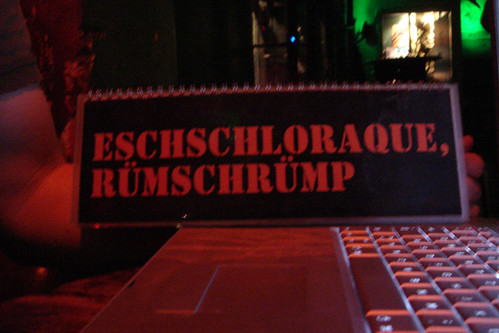Rain has cooled things in Berlin, hopefully that includes excessively jubilant Spain fans. And while the cool air blows through the apartment, I’m digging around into certain issues from the past week. One of which involves Canada, where the province of Ontario has decided to build new nuclear powerplants, the first North American plants in three decades, following years of financial, political, and safety crises.
 This plan gets the support of the conservative Prime Minister, of course. And it certainly rings true with the rhetoric of his neighbor to the south. But the way pro-nuclear lobbyists and the big companies behind them refer to this as a nuclear “renaissance” is disturbing. Be it in Canada, Berlin, Japan, or Brazil… the world still has not figured out how to store radioactive waste in a safe way. Better yet, we don’t even know IF that can be done at all. In Nevada they want to put it under a mountain. In Europe they seem to pass it back and forth by rail between Germany and France. In Japan… what do the Japanese do with their waste?
This plan gets the support of the conservative Prime Minister, of course. And it certainly rings true with the rhetoric of his neighbor to the south. But the way pro-nuclear lobbyists and the big companies behind them refer to this as a nuclear “renaissance” is disturbing. Be it in Canada, Berlin, Japan, or Brazil… the world still has not figured out how to store radioactive waste in a safe way. Better yet, we don’t even know IF that can be done at all. In Nevada they want to put it under a mountain. In Europe they seem to pass it back and forth by rail between Germany and France. In Japan… what do the Japanese do with their waste?
So instead of taking the focus off nuclear, since it is simply not viable if you value human lives and health, they’ve decided to just keep going.
I was considering all this in the context of an article I was reading in the Courrier International about the WIPP radioactive waste storage project in New Mexico. Here’s the aspect of the project that I find ponderous: They’re trying to devise a system of warning that will be understandable for future civilizations. Think about it — the radioactive material is still dangerous in 250,000 years. So by that point, language as we know it will not exist… at least not in its present form. So how do you alert people not to dig there? That this is deadly waste we left behind because we needed energy and it was good business for a few important individuals.